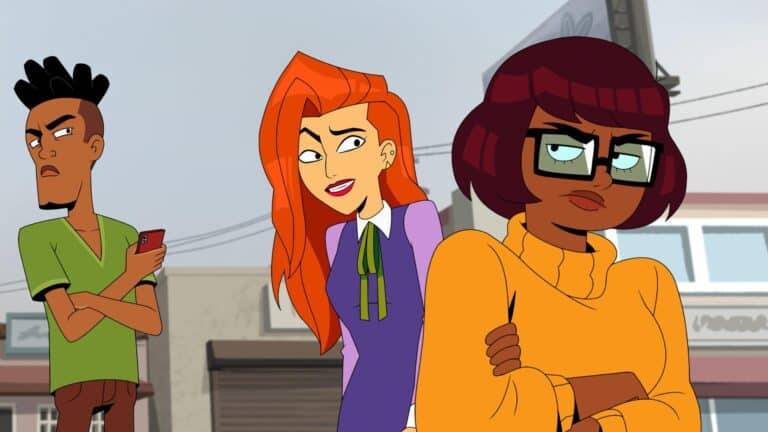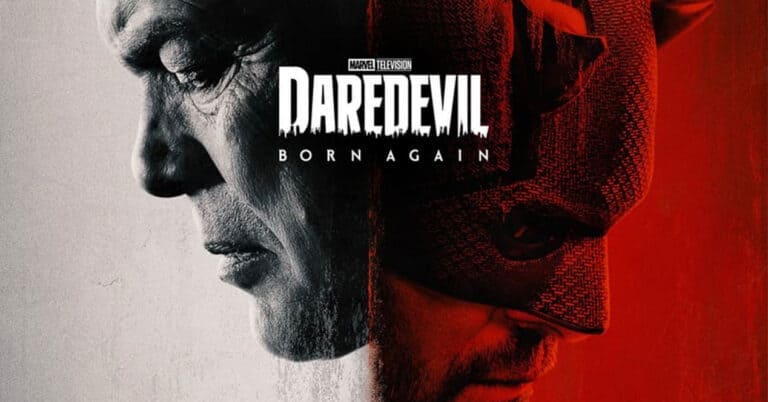
Netflix’s decision to cancel “Kaos” after just one season has shocked fans and industry observers alike. The Greek mythology comedy series, which premiered on August 29, 2024, quickly gained popularity and even reached the third spot on Netflix’s Global Top 10 chart. Despite its initial success, the streaming giant opted to end the show, leaving viewers and creators disappointed.
The series, starring Jeff Goldblum as Zeus, had set up intriguing plotlines for both mortal and godly characters by the end of its first season. Many fans were eagerly anticipating the next chapter in this modern retelling of ancient myths. The cancellation has left these story arcs unresolved, prompting discussions about the fate of promising shows on streaming platforms.

Charlie Covell, the creator of “Kaos,” expressed their disappointment in a public statement. While acknowledging the show’s dedicated fanbase, Covell indicated that the decision appears final, with little chance of a fan-led campaign reviving the series. This abrupt end highlights the unpredictable nature of the streaming industry and the challenges faced by new shows in securing long-term success.
Gods, Mortals, and Frustrated Fans: A Look at Netflix’s Canceled *KAOS*
Netflix recently made the decision to cancel the dark comedy series KAOS after just one season. This news disappointed many fans who were captivated by the show’s unique premise and talented cast. KAOS offered a modern and satirical take on Greek mythology, with Jeff Goldblum starring as a rather insecure Zeus.

Why Was *KAOS* Canceled?
Netflix has not officially commented on the reasons behind the cancellation. However, several factors likely contributed to this decision.
- High Production Costs: KAOS was an expensive show to produce, featuring elaborate sets, costumes, and visual effects.
- Lower-Than-Expected Viewership: Despite positive reviews from some critics, KAOS may not have attracted the large audience that Netflix needed to justify its costs.
- Marketing Challenges: Some argue that the show’s marketing campaign didn’t effectively convey its unique blend of humor and mythology, potentially hindering its ability to reach a wider audience.
Fan Reactions and Unanswered Questions
Fans have expressed their frustration and disappointment over the cancellation, especially since the first season ended on a cliffhanger. Many storylines were left unresolved, leaving viewers eager to see what would happen next. Some fans have even taken to social media to campaign for the show’s revival on another platform.

What Could Have Been
KAOS had the potential to explore many intriguing themes and storylines in its second season. Here are a few examples:
| Character | Potential Storylines |
|---|---|
| Zeus (Jeff Goldblum) | Dealing with the fallout of his actions and the growing rebellion against him. Exploring his complex relationship with Hera. |
| Riddy (Aurora Perrineau) | Discovering the full extent of her powers and her role in the prophecy. Navigating her relationships with Orpheus and her family. |
| Orpheus (Cliff Curtis) | Coming to terms with his mortality and his feelings for Riddy. Confronting his past and his connection to the underworld. |
| Prometheus (Stephen Dillane) | Continuing his fight against Zeus and his efforts to empower humanity. Dealing with the consequences of his rebellion. |
While the cancellation of KAOS is undoubtedly a loss for fans of the show, it serves as a reminder of the challenges faced by even the most creative and ambitious television productions. The future of KAOS remains uncertain, but its unique take on mythology and its talented cast will be missed.

Key Takeaways
- Netflix canceled “Kaos” after one season despite its initial popularity and high viewership.
- The show’s creator confirmed the cancellation, dampening hopes for a potential revival.
- This decision exemplifies the volatile nature of streaming content and viewer engagement metrics.
Overview of ‘Kaos’ and Its Cancellation
Netflix’s ‘Kaos’ blended Greek mythology with dark comedy, earning critical praise but falling short of viewership goals. The show’s unique concept and talented cast couldn’t save it from an early end.
Concept and Development of ‘Kaos’
‘Kaos’ reimagined Greek myths in a modern setting. Creator Charlie Covell crafted a fresh take on classic stories. The show mixed humor with drama, featuring gods and mortals in contemporary scenarios. Its innovative approach aimed to appeal to both mythology fans and comedy lovers. Netflix greenlit the series, hoping to capture a wide audience with its blend of familiar tales and new twists.
Critical Reception and Viewership
Critics praised ‘Kaos’ for its creativity and performances. Rotten Tomatoes showed positive reviews from many viewers. Despite this, the show struggled to meet Netflix’s viewership benchmarks. It peaked at number three on Netflix’s Global Top 10 chart. ‘Kaos’ reached its highest point with 5.9 million views in its second week. The series stayed in the top 10 for four weeks straight. However, these numbers weren’t enough to secure its future on the platform.
The Cast and Characters
‘Kaos’ boasted an impressive ensemble cast. Jeff Goldblum played Zeus, the king of the gods. Aurora Perrineau, Janet McTeer, and David Thewlis took on other key roles. Billie Piper joined the cast as Hera. The actors brought depth to their mythological characters. They portrayed gods and mortals with modern quirks and relatable issues. The performances added layers to the show’s unique premise. Viewers connected with the characters’ struggles and humor.
Cancellation Details and Audience Reaction
Netflix announced the cancellation of ‘Kaos’ after just one season. The decision came shortly after the show’s debut on August 29, 2024. Fans expressed disappointment on social media platforms. Many hoped for a second season to resolve the first season’s cliffhanger. The cancellation sparked debates about Netflix’s decision-making process. Viewers questioned the balance between critical acclaim and viewership numbers. Some fans started campaigns to save the show, showing their dedication to the series.
Frequently Asked Questions
Netflix’s decision to cancel ‘Kaos’ after one season has sparked discussions among viewers. The show’s fate raises questions about streaming platforms‘ renewal criteria and audience responses.
What were the reasons behind the cancellation of ‘Kaos’ on Netflix?
Netflix canceled ‘Kaos’ due to low viewership numbers. The show didn’t meet the platform’s benchmarks in the weeks after its release. Despite reaching the third spot on Netflix’s Global Top 10 chart, the views weren’t enough to secure a second season.
Is there a possibility for ‘Kaos’ to return for a second season on another network or platform?
Currently, there’s no news about ‘Kaos’ moving to another network or platform. The show’s future remains uncertain. Fans hope for a revival, but no concrete plans have been announced.
What has the viewer response been to the cancellation of ‘Kaos’ after its first season?
Many viewers expressed disappointment over the cancellation. Some fans threatened to cancel their Netflix subscriptions. Social media saw an outpouring of support for the show, with viewers praising its originality and clever writing.
Have there been any official statements from Netflix regarding the cancellation of ‘Kaos’?
Netflix hasn’t released a detailed statement about ‘Kaos’ cancellation. The company typically doesn’t comment on specific reasons for show cancellations. Viewership data often guides these decisions behind the scenes.
What impact do petitions have on Netflix’s decisions to cancel or renew shows like ‘Kaos’?
Petitions rarely influence Netflix’s renewal decisions. The company mainly focuses on viewership data and production costs. While fan campaigns can draw attention, they seldom reverse cancellation choices.
How does Netflix’s strategy for renewing or canceling shows compare to traditional network television?
Netflix uses viewership data to make quick renewal or cancellation decisions. Traditional networks often consider ratings over longer periods. Streaming platforms can assess a show’s performance within weeks, leading to faster verdicts on a series’ future.






